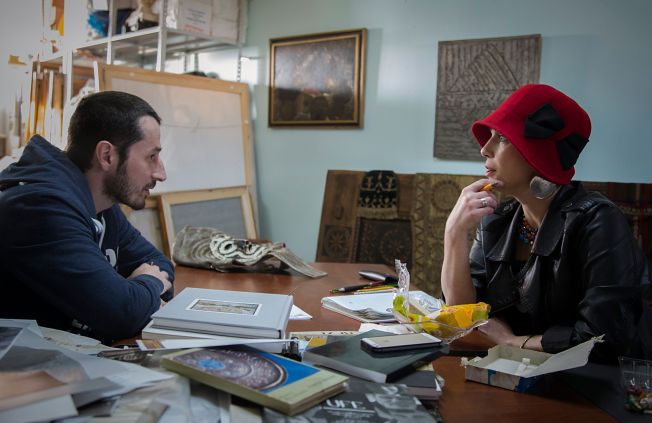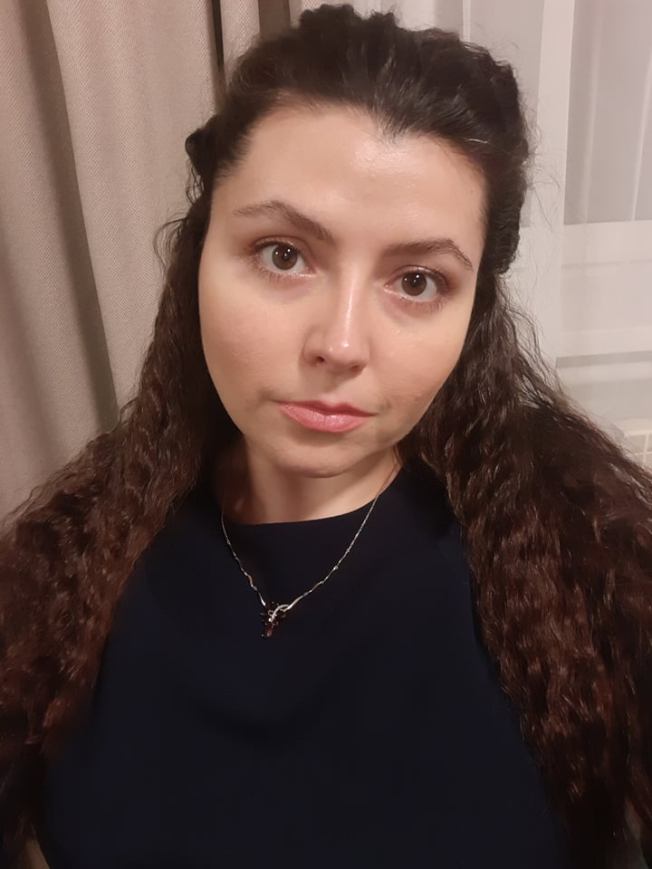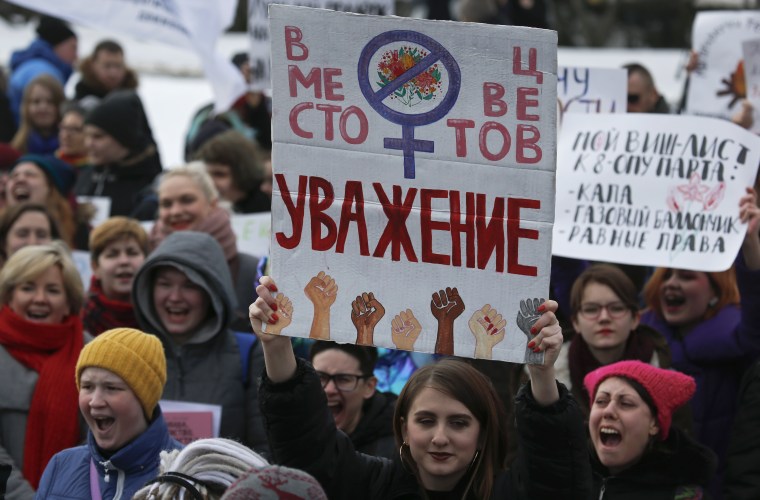Reporting on gender-based violence in Russia has become more challenging in recent years. In 2017 the government controversially decriminalized some forms of domestic violence, leading to a sharp drop in reported incidents, which journalists told CPJ does not reflect the true scope of the problem. And last year, Russia passed a new libel law to punish false accusers of sexual assault, leaving journalists and the women they interview wary of legal action for publishing such stories.
Yet in spite of this, independent reporters have continued to pursue the beat. Outlets like Daptar, which covers gender issues in the Muslim-majority Russian republic of Dagestan, and Holod, an investigative web magazine in Moscow, give voice to women experiencing violence and harassment beyond the official figures.
Ahead of International Women’s Day on March 8, CPJ spoke via phone with three female journalists, including editors at Daptar and Holod, about the challenges they face covering gender-based violence in Russia, including sexist attitudes from some colleagues and sources. The interviews have been edited for length and clarity.

Svetlana Anokhina, chief editor of Daptar
(Aydemir Daganov)
What are the main challenges when reporting on violence against women?
Svetlana Anokhina: Previously, criticism of me and my work was more sporadic and disorganized. Now there is an ideological platform that unites many of my critics. They see my work as opposing Islam because I am talking about equal rights.
That’s why, importantly, when we publish controversial articles in Daptar, we try to include commentary from a religious figure as an expert – to demonstrate that within the religious framework of Islam, if a woman is being oppressed, she has the right to not put up with it. I also try to solicit writing from men on the topic of women’s rights, to help guide other men through this topic.
Has your publication received criticism for its coverage?
As far back as I can remember, I have always been writing about women because it’s important to me to defend the idea that I am not a second-rate creature. I have always faced criticism – it’s a constant background noise, and I have learned to not pay attention.
One story that received a lot of negative reaction, to put it mildly, was about [the practice of] female circumcision in Dagestan. It was released on August 1, 2016; I had worked on this article for two years. I started receiving messages with threats and insults. Colleagues showed me screenshots from closed chats whose participants discussed how to find me, where I lived. Although I consider myself very strong, I had a nervous breakdown. My nose was bleeding all the time, I could not sleep, I dreamed of the protagonists of my article, whom I could not protect. I was shaking all the time. It took me a month to recuperate.
The critical voices were divided into two categories: the first was people yelling “We don’t have such a thing [as female circumcision]!” and “You are slandering Dagestan!” and “Now the world would look at us as savages!” The other group yelled that “Yes, we do [female circumcision] and it’s the right thing to do!” These two groups did not fight with each other at all, but attacked me with a surprising unity. Because I challenged three “sacred” things: Religion. Tradition. And the myth that the women in the Caucasus are the most unoppressed of all unoppressed.
Have you experienced gender-based harassment or discrimination while working as a journalist in Dagestan?
When I first started working at a newspaper in 2002, I was suddenly called to the editor’s office. He was there with another male boss. They asked me, “Do you have a swimsuit? Let’s go to the sauna together!” At first I did not understand how to behave, how to react. Then I somehow got my bearings, and said, “Yes, of course. Let me call my parents. I am sure they too have swimsuits, especially my dad – and he also has a gun.”
There have been numerous similar situations since, but I have always been able to push back against anything of this kind, to talk back and make the harasser feel ridiculous. They think women will be embarrassed by the situation and stay quiet about it – and indeed, women rarely complain when they are being harassed, because they feel ashamed.
How is Dagestan different from the rest of Russia in terms of the way women are treated?
Dagestan is certainly more patriarchal. Here, a female correspondent is treated with less trust than a male one; men may not even want to speak with her about serious topics. But at the same time, being a woman is sometimes easier if you want to perform some difficult journalistic task, due to the fact that you are not taken seriously, not seen as a big threat, and perceived as “nice” and “obedient” — so people can speak more openly in your presence.
There’s an attitude here that female journalists are doing something not “worthy” of women. I have been asked a hundred times, “So, you’re a journalist — does your husband allow it?” If I were a saleswoman, no one would ever ask me that. Dagestan in places is a completely old-fashioned, ancient society, in which a woman who speaks with a man [for an interview] can be perceived as broadcasting her sexual availability.
Do many women in Dagestan want to become journalists?
Yes, but there are very few female editors in Dagestan, because, I think, being an editor here means conducting constant negotiations, formal and informal, and these negotiations are often conducted among men in places inaccessible to women like saunas, gyms, and mosques.
Also, here there’s a strong pushback against the feminist movement. Feminism has become a very triggering topic, even the word “feminist” provokes a lot of anger. Our young generation is very much into religion and tradition, and feminism is perceived with hostility, seen as almost demonic.

Тaisia Bekbulatova, founder and chief editor of Holod
(Rina Mayer)
Your outlet covers violence against women in Russia and gender discrimination. How is your reporting received?
Тaisia Bekbulatova: We don’t experience much resistance from society, but resistance from the state is very palpable. Take the tightening of the law on “libel” in the criminal code [which now carries a penalty of up to five years in prison for false sexual assault accusations]. We had a case when a woman was afraid to talk openly about rape, to publish her story, because she saw the tightening of this law and thought that she would be at risk. I think, unfortunately, there will be more such cases.
Do these laws affect only the women you write about, or the journalists too?
Both the journalist and the source can be accused of slander. And if a journalist tries to hide or anonymize the source, it will not protect the journalist. If the woman is identified under her own name, [the state] would just try to jail them both. Every time we write something about violence, we try to run it by our lawyer.
Does Holod play a role in the societal shift to reject sexual harassment and violence as “normal”?
We are far from activist journalism. Our reporting on violence against women is not an ideological declaration, but rather an opportunity to give a voice to people who have been silent. This is one of the primary functions of journalism, and in this case, more than half of the country – women — has been silent for a long time. They have been silent about everything — about sexual violence, about the abusive [control of] reproductive [choices], about economic violence. And now they have finally started talking. Not providing them with a platform to express their feelings, speak of their problems, would simply be un-journalistic, unprofessional.
How does state media cover women’s issues?
They do cover this [topic] but they cover it using a different lens. They use headlines like, “[She was] killed out of jealousy,” which is the kind of victim-blaming that we are used to here. This devalues the problem, ignoring the fact that [violence] is a systemic problem. Therefore, it is up to the independent media to take on a more progressive agenda.
[There are also] headlines that place the blame for an incident on a woman being abused – [such as] “She brought it on,” “She provoked,” “She cheated,” “She is a cuckoo-bird mother” [Russian slang for a mother who has abandoned her children]. These phrases are used when writing about women, but never about men. In the same situation, the woman will be judged, and the man will look like a victim.
If before, this was considered normal, now, if you see a sexist news headline, it’s likely that there will be a comment [beneath the article] saying that this is unacceptable, that it normalizes violence against women. This way outlets can be forced to change.
Are female journalists, in your experience, discriminated against based on their gender?
[Sexism] affects the careers of female journalists: in order to get a position of power, a woman needs to be much tougher, more stubborn, ready to break through the walls, more so than a man. For a man, [success] is natural growth; for a woman, it is something that she must obtain through struggle.

Sofia Rusova, freelance journalist and board member and co-chair of the Moscow-based Professional Union of Journalists and Media Workers
(Sofia Rusova)
Have you experienced gender-based discrimination while working as a journalist in Russia?
Sofia Rusova: When I started working as a journalist, there were many things my male colleagues did that I didn’t realize were wrong. Now, I would react differently. These behaviors included both harassment and sexual harassment, unfortunately, such as… unnecessary touching, offers of late-night one-on-one internships, constant suggestions to have a drink at the workplace and somehow spend time together, constant objectification and inappropriate, sleazy compliments about my appearance.
I think things have started to change in the last five years. Now, people in work environments are trying to draw boundaries between what is acceptable and what is not.
What are some of the issues facing female journalists in Russia?
There is discrimination in the labor market, when women are offered lower salaries. I know of many examples where the [female] correspondent’s salary is more than 30 percent lower than that of her male colleague when they both do the same job. But those [female journalists] I know, and who are experiencing this issue do not want to talk openly about it — they are afraid of being fired.
Regarding the safety of women when they are interviewing men in power, I think that the problem of harassment exists, but it is very hidden. There is harassment, but [female journalists] usually talk about it many years later, if they ever do. They are usually afraid of persecution by officials, people in power; they are afraid to admit these facts, to make them public.
What are the challenges of reporting on issues of harassment and violence against women in Russia?
If the editor is a man, he sometimes cannot understand the subtleties [of these issues]. Editors often say they only want to cover these issues if it’s something extreme, say, a murder… This upsets me a lot. In Russia, when [abused] women decide to speak with the media, they do it because the law does not protect them, and they often do not find support from their families either —the only way to go through the experience of a terrible rape or violence is to share it in the press, and I think it’s wrong to deprive people of that.
What should journalists keep in mind when reporting on these issues?
We have had cases in which the victims got worse after talking to journalists. Recently there was a story when a journalist interviewed a woman who had been subjected to violence, and instead of listening to her, [the journalist] started speaking about herself. She also had some [violent past] episodes that she started sharing with the interviewee, who was trigged by that. You need to understand such moments and learn how to write about violence in general.
There are several organizations that do this kind of training [in Russia]. But there are a lot of media outlets, and very few training opportunities. In addition to training, communication with foreign experts helps — after all, gender studies started in Europe and America, then slowly reached Russia, and now there is interest in it here.
[Editor’s note: CPJ emailed the press service of the Russian State Duma and the Ministry of Internal Affairs for comment but did not immediately receive a response.]
